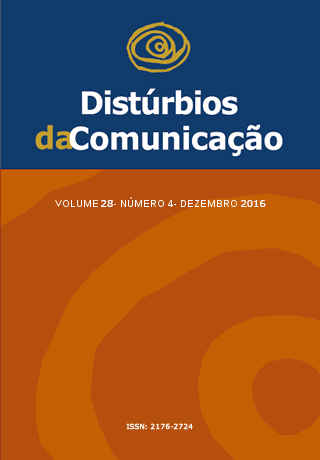Extension activities aimed at the prevention of chronic non communicable diseases: Experience report
Keywords:
Introduction, Alterations in communication can occur due to Chronic non Communicable Diseases (CNCDs) affecting the quality of life and autonomy of the subject. Objective, to describe an extension of action focusing on prevention of CNCDs that cause impaiAbstract
Introduction: Alterations in communication can occur due to Chronic non Communicable Diseases (CNCDs) affecting the quality of life and autonomy of the subject. Objective: to describe an extension of action focusing on prevention of CNCDs that cause impairments in communication and linguistic process. Experience report: The extension activities were conducted in the period from February to October 2015 in the Clinical Medical wing of a secondary level Regional Hospital. The target group were patients hospitalized for more than 24 hours and their accompanying. The action occurred in the rooms of the hospital and was conducted in four stages, with approximate total duration of 50 minutes. The first stage aimed to inform about the influence of human communication on quality of life and the role of Speech and Language Pathologist in disease prevention actions, health promotion and rehabilitation. The objective of the second stage was to identify the main avoidable risk factors for CNCDs in the target population. Then, in the third stage was conducted a presentation about risk factors for chronic diseases with orientations about the importance of modifying certain behaviors. In the last step was conducted a questionnaire of satisfaction of participants in relation to the proposed action. Final considerations: These extension activities had as principles: user embracement, shared decision, humanization and the autonomy of the subject. Encourage healthy choices and emphasize its benefits can help individuals to build strategies that enable lifestyle providing well-being and quality of lifeDownloads
Metrics
Downloads
Published
Issue
Section
License
Copyright (c) 2017 Kelly Silva, Raphaela Barroso Guedes-Granzotti, Patrícia Aparecida Zuanetti, Pablo Jordão Alcântara Cruz, Tatiane Lisboa Souza, Paloma Araújo Lisboa, Nathália Monteiro Santos, Rodrigo Dornelas

This work is licensed under a Creative Commons Attribution 4.0 International License.









